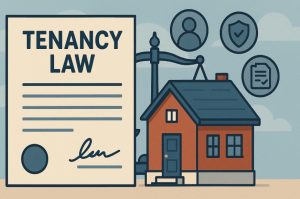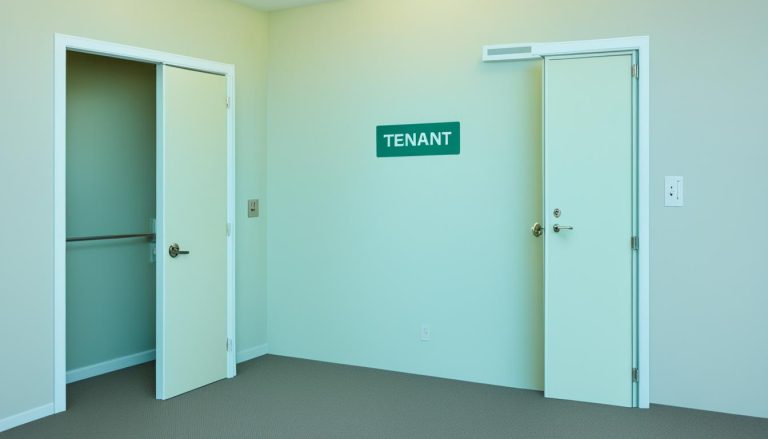The Renters Rights Bill 2025 marks a major shift in the UK’s housing legislation, aiming to deliver greater security and fairness for tenants while ensuring landlords have clear responsibilities.
With the abolition of Section 21 evictions and a move to periodic tenancies, the bill addresses long-standing issues in the private rented sector. This guide explores what tenants and landlords need to know, the implications of the reforms, and how they will reshape renting across England.
What Is The Renters Rights Bill 2025 And Why Is It Important?

The Renters Rights Bill 2025 is a comprehensive reform of the private rented sector in England. It aims to increase security for tenants, improve housing standards, and streamline the legal process for both tenants and landlords. The bill replaces outdated tenancy laws with a unified framework designed to better reflect modern housing needs.
The current system has often left tenants vulnerable to sudden evictions and rising rents, while responsible landlords have faced uncertainty in legal processes. This bill addresses these concerns by establishing a clear legal foundation with well-defined rights and obligations.
How Will The Abolition Of Section 21 Impact Tenants And Landlords?
Section 21 of the Housing Act 1988 has long allowed landlords to evict tenants without giving a reason, provided they offer two months’ notice. This has contributed significantly to housing insecurity across the country.
Under the new bill, landlords will no longer be able to evict tenants without a valid reason. They must now rely on specific legal grounds and take possession through the court system. For tenants, this means greater stability and the ability to challenge substandard living conditions or rent increases without fear of losing their home.
For landlords, this reform introduces a more structured process. Evictions will still be possible but must be justified using clearly defined grounds.
What Does The New Tenancy Structure Mean For The Private Rented Sector?
Fixed-term tenancies will be replaced by periodic tenancies across the board. This means tenants can stay in their rental property indefinitely unless they choose to leave or the landlord successfully regains possession through one of the approved grounds.
Key aspects of the new tenancy model include:
- Tenants can give two months’ notice to leave at any time
- Landlords must give at least four months’ notice when using certain grounds
- All new and existing tenancies will automatically transition to periodic agreements on the implementation date
This shift offers tenants greater flexibility and eliminates the risk of being tied to long-term agreements in unsuitable living conditions.
What Are The Updated Grounds For Possession Under The New System?

The Renters Rights Bill 2025 introduces a structured approach to property possession, replacing Section 21 no-fault evictions with a detailed list of grounds for possession. These are divided into mandatory and discretionary categories, each with specific requirements and notice periods.
Mandatory Grounds For Possession
Mandatory grounds require the court to grant possession if the landlord can prove the condition is met. These grounds ensure that landlords have legal avenues to regain possession of their property when there is a clear and justifiable reason.
Table: Selected Mandatory Grounds for Possession
| Ground | Summary | Explanation | Notice Period |
| 1 | Occupation by landlord or family | Landlord or close family needs the property as their primary home. Cannot be used within the first 12 months of tenancy. | 4 months |
| 1A | Sale of dwelling-house | Property is being sold with vacant possession. Inapplicable during the first 12 months of the tenancy. | 4 months |
| 2 | Sale by mortgagee | Mortgage lender has repossessed the property and needs vacant possession to sell. | 4 months |
| 4A | Student lets | Houses in Multiple Occupation (HMOs) rented to full-time students must be made available for new students the following year. | 4 months |
| 6 | Redevelopment | Property must be substantially redeveloped or demolished. Not feasible to conduct work with tenant in situ. | 4 months |
| 7A | Severe anti-social behaviour | Immediate action permitted if tenant convicted of serious offences, breaches ASB orders, or subject to a closure order. | Immediate |
| 8 | Rent arrears | Tenant is in at least three months’ arrears both when the notice is served and at the court hearing. | 4 weeks |
Other mandatory grounds also cover special scenarios such as:
- Superior lease expiry (e.g., 2ZA–2ZD)
- Religious and agricultural housing (grounds 5, 5A, 5B)
- Supported or stepping-stone accommodation (5E–5H)
- Death of a tenant and succession issues (ground 7)
- Tenancy granted under homelessness duty (5G)
Each of these is tightly defined to ensure fair use, often limiting use to specific housing providers or requiring external confirmation (e.g., a local authority notice).
Discretionary Grounds For Possession
Discretionary grounds give the courts more flexibility. Even if the ground is proven, the court may decide not to grant possession if the circumstances do not justify eviction.
Table: Selected Discretionary Grounds for Possession
| Ground | Summary | Explanation | Notice Period |
| 10 | Rent arrears (any amount) | Applies if the tenant is in arrears of any amount but not enough to trigger mandatory grounds. | 4 weeks |
| 11 | Persistent arrears | Consistent late payments, even if not in full arrears. | 4 weeks |
| 12 | Breach of tenancy | Any breach other than rent, such as subletting or property misuse. | 2 weeks |
| 13 | Property deterioration | Tenant has caused damage to the property’s condition. | 2 weeks |
| 14 | Anti-social behaviour | Includes noise nuisance, threats, criminal activity near the property, or disruptive conduct. | Immediate |
| 14A | Domestic abuse | Used by social landlords to evict a perpetrator when the victim has fled and is unlikely to return. | 2 weeks |
| 17 | False statements | The tenancy was granted due to a deliberately false application or misrepresentation. | 2 weeks |
| 18 | Supported accommodation | Tenant refuses to engage with support services, making the accommodation unviable. | 4 weeks |
Other discretionary grounds include:
- Alternative accommodation is available (ground 9)
- Tenant damaged furniture or furnishings (ground 15)
- Involvement in rioting (ground 14ZA)
These grounds allow landlords and social housing providers to act when a tenancy is no longer suitable or when the tenant’s actions cause harm to others or the property.
Additional Notes On Usage And Restrictions
- Some grounds, such as those for redevelopment or sale, come with limitations. For example, they cannot be used within the first 12 months of a tenancy.
- Many grounds are specifically reserved for registered social landlords or particular types of accommodation, like supported housing.
- Grounds involving employment often relate to service tenancies, where housing is tied to a job, such as caretakers or agricultural workers (grounds 5C, 5D).
- In all cases, proper procedure must be followed, including valid notice and, where required, court approval.
Legal Compliance Requirements
Landlords must also meet compliance obligations under the new system:
- The tenancy deposit must be protected in a government-approved scheme.
- The property must be registered on the Private Rented Sector Database.
- Notices must be properly served using the prescribed format and timelines.
Failure to comply with these procedural and legal requirements can invalidate possession claims, preventing landlords from regaining their property even under legitimate grounds.
How Are Rent Increases And Appeals Handled Under The New Rules?

Under the bill, rent increases are restricted to once per year using a structured process. Landlords must serve a Section 13 notice, providing at least two months’ notice of the proposed increase. The increase must align with current market rates.
If tenants believe the new rent exceeds fair market value, they can appeal to the First-tier Tribunal. Notable reforms in the process include:
- The tribunal cannot raise rent above the landlord’s original proposed figure
- Rent increases will not be backdated
- The tribunal can defer an increase by up to two months in hardship cases
The bill removes rent review clauses and prohibits rent increases by any method other than the prescribed Section 13 process. This ensures all parties understand the process and provides a clear route for disputes.
What Are The Main Concerns And Campaigns Around The Bill?
Several issues have been raised by landlord organisations and industry stakeholders regarding the practical implementation of the bill. These concerns focus primarily on the operational readiness of the court system, tenant appeal procedures, and specific tenancy types.
Key campaign areas include:
- Court Capacity: With Section 21 abolished, all evictions must proceed through the courts. Current processing times already exceed six months, prompting calls for additional funding and judicial resources.
- Rent Appeals: The ability for tenants to appeal any increase, even below market rate, may overload the tribunal system. A triaging process has been suggested to assess cases before formal submission.
- Student Housing: Ground 4A permits landlords of HMOs to regain possession for new student lets but does not cover one- and two-bedroom student properties, which make up a large segment of student accommodation.
- Rent Arrears Threshold: Increasing the arrears threshold from two to three months and extending the notice period from two weeks to four months has raised concerns that landlords will be exposed to prolonged non-payment.
These concerns have led to targeted lobbying efforts to secure amendments before the bill’s final approval.
How Will New Protections For Student Housing Affect The Rental Market?
Student landlords face unique challenges due to the seasonal nature of tenancies. Ground 4A in the bill allows landlords to evict tenants in Houses in Multiple Occupation (HMOs) to make way for new student groups at the start of an academic year.
However, this ground currently does not apply to one- and two-bedroom properties, despite these comprising 32% of the student rental sector. This discrepancy could disrupt the traditional cycle of student housing availability.
Amendments have been proposed to:
- Extend Ground 4A to include all types of student accommodation
- Refine the student eligibility criteria to ensure protection for genuine students, while maintaining safeguards for vulnerable tenants
If implemented, these changes would align the student rental market more closely with operational and academic needs.
How Will The Renters Rights Bill Affect Landlords’ Responsibilities?
The bill increases regulatory expectations for landlords by introducing new oversight mechanisms:
- Private Rented Sector Database: Landlords must register their properties, which will improve transparency and help tenants make informed choices. Registration is also required for landlords to access certain possession grounds.
- Landlord Ombudsman: A mandatory redress scheme that provides tenants with an independent forum for resolving disputes quickly and fairly. The ombudsman will have the authority to issue binding decisions and enforce compliance.
These changes aim to professionalise the sector, reduce reliance on courts, and give tenants better access to justice.
What Rights Will Tenants Gain Regarding Pets And Property Standards?

Under the new legislation, tenants can request to keep a pet in their rented home. Landlords must consider the request reasonably and can only refuse for specific, justifiable reasons. To protect landlords’ property, tenants may be required to obtain pet insurance.
The bill also extends the Decent Homes Standard to the private sector. This sets minimum requirements for:
- Safe and hazard-free living conditions
- Reasonable state of repair
- Modern facilities and energy efficiency
Local authorities will gain enhanced enforcement powers, allowing them to issue civil penalties and conduct proactive investigations.
What Are The Key Anti-Discrimination Measures In The Bill?
The Renters Rights Bill 2025 introduces legal protections to combat discriminatory practices in the rental market. It will be unlawful for landlords and agents to reject tenants based on:
- Receiving housing benefits
- Having children
This reform is aimed at creating a fairer rental landscape, ensuring access to housing is based on ability to pay and suitability, not on personal circumstances.
What’s The Timeline For Implementation And What Should Tenants And Landlords Do Now?
The bill is currently awaiting its Report Stage in the House of Lords, expected in early June 2025. Once passed, the reforms will be implemented on a single date to ensure consistency across the sector.
On this date:
- All existing tenancies will become periodic
- Section 21 and legacy Section 8 notices will no longer be valid
- All possession proceedings must follow the updated rules
Landlords should prepare by registering on the new database, reviewing their tenancy agreements, and ensuring compliance with property standards. Tenants are encouraged to familiarise themselves with the new rights and procedures to take full advantage of the protections offered.
Conclusion
The Renters Rights Bill 2025 signals a major turning point in the UK housing market, offering renters more security, fairness, and protection against exploitative practices. By abolishing Section 21, mandating periodic tenancies, and strengthening tenant rights, the government is seeking to restore balance in a sector long criticised for instability and inequality.
Landlords and tenants alike must now familiarise themselves with the new framework, prepare for implementation, and work collaboratively to ensure the private rented sector becomes more transparent, accessible, and fair for all parties.
FAQs about the Renters Rights Bill 2025?
What is a periodic tenancy and how does it affect tenants?
A periodic tenancy continues month-to-month without a fixed end date, giving tenants the right to leave with two months’ notice and increasing their flexibility.
Can landlords still evict tenants under the new bill?
Yes, but only using approved grounds for possession, such as selling the property or dealing with anti-social behaviour.
How will rent increases be managed fairly?
Rent can be increased once a year using a Section 13 notice. Tenants can appeal if they believe the increase is above market value.
What is the purpose of the landlord ombudsman?
The ombudsman offers tenants a fast, impartial way to resolve complaints without needing to go to court.
Will student rentals be affected by the new rules?
Yes. Special grounds exist for shared student houses, but there are ongoing campaigns to extend protections to all student housing types.
Are landlords required to allow pets?
Landlords must consider pet requests reasonably and cannot refuse without a valid reason. They can request pet insurance to mitigate risk.
How do the anti-discrimination rules impact tenant applications?
Landlords and agents can no longer refuse applicants solely because they receive benefits or have children, promoting fairer access to housing.







If a rented property is owned by a company and there is no written tennance agreement in place
will the new rules apply